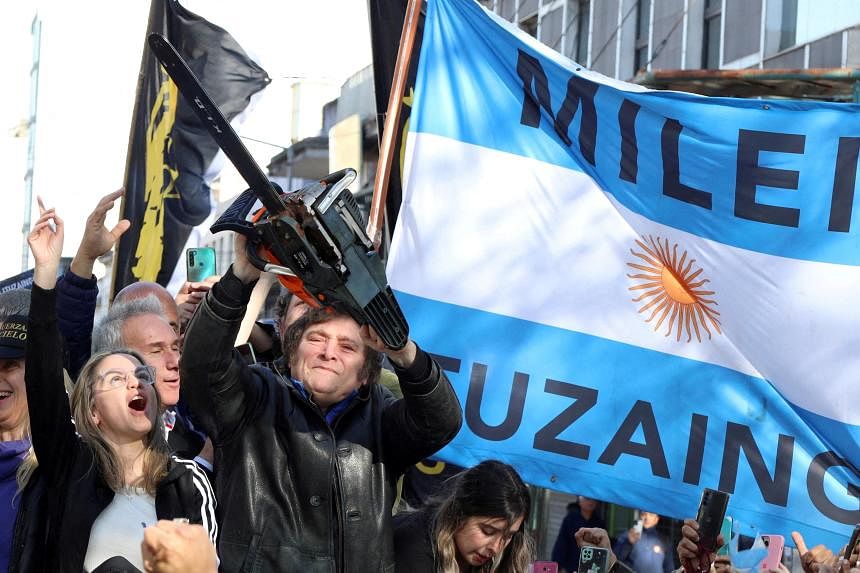BUENOS AIRES - Argentina’s spending-slashing new President Javier Milei has hailed his country’s first quarterly budget surplus since 2008 as a “historic achievement”.
In the first quarter of 2024, the South American country recorded a budget surplus of about 275 billion pesos (some S$400 million at the official rate), he told national TV late on April 22.
This amounted to a surplus of 0.2 per cent of gross domestic product.
“This is the first quarter with a financial surplus since 2008,” said Mr Milei, referring to his left-wing rival Cristina Kirchner’s first year in the presidency.
Mr Milei, who took office in December, boasted of “a feat of historic significance on a global scale”.
“If the state does not spend more than it collects and does not issue (money), there is no inflation. This is not magic,” the self-described “anarcho-capitalist” said.
Mr Milei won elections in November 2023 vowing to reduce the deficit to zero – a target even more ambitious than required by the International Monetary Fund, with whom Argentina has a US$44 billion (S$59.8 billion) loan.
To that end, he has instituted an austerity programme that has seen the government slash subsidies for transport fuel and energy, even as annual inflation stands at 290 per cent year on year, poverty levels have reached 60 per cent and wage earners have lost a fifth of their purchasing power.
Thousands of public servants have lost their jobs.
“Don’t expect a way out through public spending,” Mr Milei warned on April 22.
University students, backed by unions and opposition parties, have called a march for April 23 to protest against financing cuts to higher public education, research and science under the new president.
Universities have declared a budgetary emergency after the government approved a 2024 budget the same as the one for 2023, despite inflation approaching 300 per cent and a near 500 per cent increase in energy costs that higher learning institutions say has brought them to their knees.
“At the rate at which they are funding us, we can only function between two and three more months,” University of Buenos Aires rector Ricardo Gelpi said. AFP

